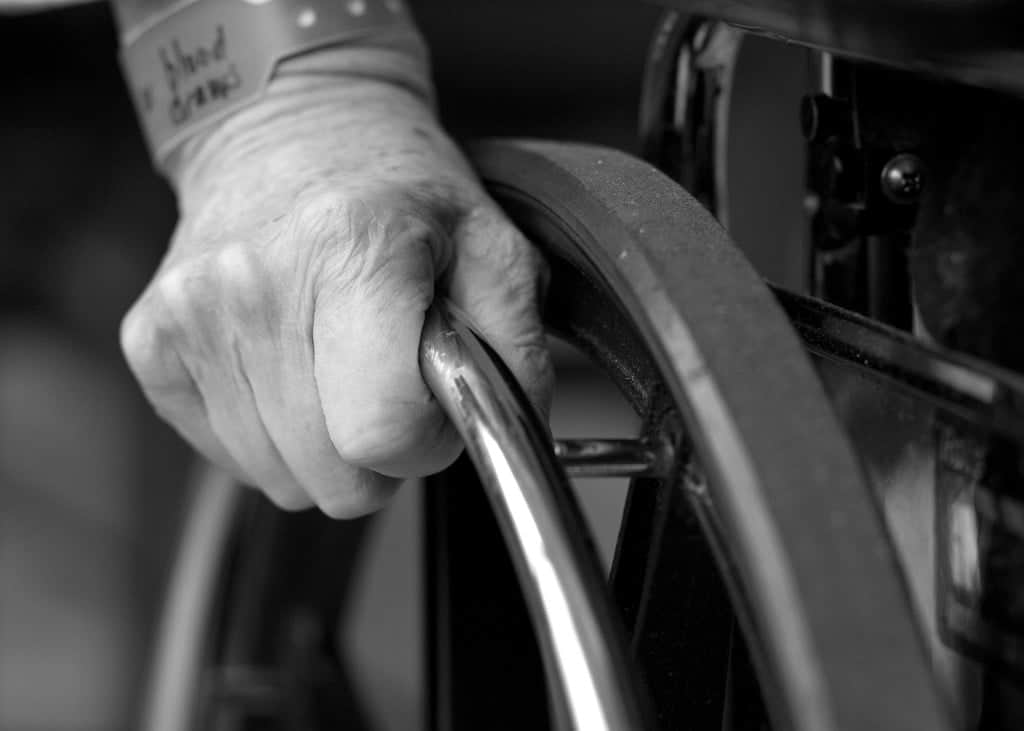I worked on-call in a 175-bed skilled nursing home for nearly 8 years.
When I first got my CMA (Certified Medical Assistant) I did so because I did NOT want to be a CNA (Certified Nursing Assistant). The very last thing I wanted to do, at the age of 21, was to take care of “old people”. Many, many years later, as I found myself still home with kids, still homeschooling, and facing 2 mouths full of braces to pay for, becoming an NA-C was really my only employment option. I needed something that would be flexible as far as the hours were concerned, and would make the payments. I took the class offered by a facility and became an NA-C. What I thought of as “lower classwork” turned out to be an ongoing learning experience. Some things I learned over the years:
1. Everyone was young once
Nearly everyone once lived in their own home and cared for themselves and their families. An avid gardener, reduced to shifting lucidity and confined to a wheelchair deserves no less respect than the physician who checks up on her once a week. She will be reasonably frustrated to have to depend on others for what she has always done independently. Respect this independence.
2. Seize those “windows of opportunity” when they open.
Alzheimer’s Disease is at once sad, confusing, funny, frustrating, disheartening, and touching for caregivers as well as the person themself. No matter how they talk or behave now, they were different before. Those windows open suddenly, and if you take the opening, you can learn many wonderful things from these special people. The windows close just as quickly, and it is then that you internalize what you have learned and care for them as they are, having been touched by their spirit in that moment.
3. Nearly all healthy, “younger” adults move and speak too quickly for the elderly.
We don’t realize how much slower they are until they are commanding us to talk slower. They listen, speak, eat, walk, and think slower, too.
4. Even someone who is seemingly lost in dementia can recognize a kind person.
Make eye contact, speak to them, smile, and touch them. They may not know who you are exactly, but they do know kindness. Show it.
5. No one should die alone.
The policy where I work is that no one dies alone. If we have someone who is eminently fading, we try to spend as much time with them as we can, particularly if their family cannot be there. You may not think that a person so close to death would even care who was there, but they do. Even if they don’t tell you, chances are that later their loved ones will.
6. Incontinence is embarrassing.
I have heard of aides treating residents as if they are a 2-year-old who messed his pants, when in fact he is a feeling, thinking adult who, although accustomed to having help with this, still is not entirely comfortable with it. Seek to minimize their discomfort when possible.
7. The way you live your life will affect the way your family feels when you die.
People who make their families a priority when they are young have families who make them a priority when they are old. I once had a resident who was in her last hours of life. The nurse called her son, who came. He looked in his mother’s room, went back to the nurse’s station, and said, “Just let me know when she’s gone.” When asked why he wasn’t staying, he replied, “She was an embarrassing drunk the entire time I was growing up. She was horrible to live with. My brothers and I just want this over with. Call me when it is.”
8. Everyone has a story.
Ask them about their life: Their spouse, children, house, growing up years, etc. Anything and everything! We had a lady who lived to be 104 years old. When she was 102, a fellow aide asked her what she thought the best invention was. Her reply? “The telephone. It was wonderful to be able to talk to my son after he moved across the country! Amazing invention, that telephone.” Her name was Evelyn, and I’ll never forget her. She told me “Honey, you don’t want to live as long as me. I’m just TOO OLD.” At 103, I think she had the right to make that statement. Still, she wowed me! She was completely oriented and alert even when she passed at 104.
As I continue to work in healthcare, at a medium-sized hospital now, I learn something new all the time.
I still think about my residents in the nursing home. Currently one of my very favorite cantankerous patients on my unit is in her last days. It makes me so sad to see her sleeping all the time, waiting to pass. But remembering her aches and pains, and knowing her long, full life was wonderful, and her family are surrounding her, it is sweet too. And THAT is something I never thought I would learn about death. It really can be sweet… bittersweet…
Originally published on my old blog, The Momma Knows, on April 14, 2009, updated Sept. 1, 2023.
